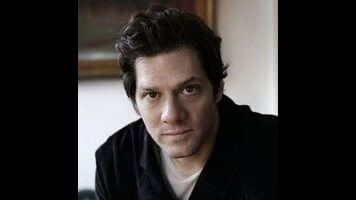Adam Rapp’s Know Your Beholder is two-thirds of a masterpiece

Homebodies and introverts know the tinge of relief that comes on rainy days as the weather provides an easy excuse to stay in and removes any guilt about a lack of plans. Francis Falbo, the narrator of Adam Rapp’s deeply felt but ultimately conventional Know Your Beholder, is dealing with the extremes of both variables. His hometown of Pollard, Illinois is besieged by a blizzard that dumps feet of snow on the populace each day, resulting in “municipal constipation” that closes all local services. The storm is so bad, and goes on for so long, that no one has picked up on the fact that Francis is agoraphobic. Even without the snow, he wouldn’t have stepped outside in days, and there’s something oddly cozy in the prospect of joining him in his madness.
For perhaps the first two-thirds of its length, Know Your Beholder skates by with effortless charm, sketching the compelling personalities of lovable fuck-ups while probing the real pain that led to its hero’s geographic paralyzation. There’s more than a touch of Chuck Klosterman in these passages, between Francis’ musings on music and a climatic barrage of weather, but Rapp produces richer tones from similar notes. Francis is enough of a sad sack that a drug dealer is by default his closest friend, but he’s far more self-aware than the average resident of Klosterman’s Downtown Owl, knowing to tell a lie about Internet porn to seem less pathetic than he would otherwise (“I’ve actually been thinking about my ex-wife and whacking off,” he tells us).
Francis works as the landlord to his childhood house, renting out rooms while squirreling himself away in his attic. While he’s unqualified and can’t even shovel the walk (a condition-hiding lie about a bad back snowballs—heh—to the point where he wonders how his fake injury could develop into something that excuses him from invitations months down the line), the job is a perfect fit for him. His half-dozen or so tenants all provide all their own drama, ranging from the embarrassing (a “witchy little preppy Goth” artist who wants him as a nude model) to the harrowing (a married couple whose actions since the disappearance of their daughter have been suspicious). As the job is the definition of working from home, his condition is concealed.
Eventually, though, the snow melts, and Francis becomes cooped up by choice rather than force. It’s here Rapp loses interest in some of the balls he’d been juggling and begins to steer toward the familiar shore of easy answers. While many of the book’s moments do what they’re supposed to do—establish the house as a place of emotional chaos and illogic—it’s disappointing how few of the threads yield anything satisfying. A small example: the book is Francis’ memoir, and there are repeated references to his finding time to write or hiding the pages from a nosy guest, but nothing comes of this, even when he finds an unexpected manuscript written by his mother.
Francis’ condition was mostly brought on by the break-up of his marriage (and to a lesser extent, his band), and admittedly the travails of a man-child pining over an idealized lost love is well-charted territory. There are elements here that feel very familiar, even if they’re rarely conveyed this soulfully. Rapp’s insights are deeply empathetic, and his way with detail is heartbreaking. The pain that’s felt when Francis asks whether his ex-wife misses “this”—their tradition of Steely Dan and Maker’s Mark—and she sighs and says that she and her new husband “have our own ‘this,’” will ring depressingly true to anyone who has been moved on from.
The book marks a semi-rare excursion into prose for Rapp, who is best known for theater like the Pulitzer-nominated Red Light Winter or the singular Hallway Trilogy, which also features a cavalcade of broken people forced to live near each other. Know Your Beholder fits easily into his oeuvre, though. He’s always been comfortable in the extremes of the soul and body, though there’s a shift from pedestrian yuck into the more explicitly criminal that might’ve been smoother with an actor rather than a narrator. The build-up is tremendous, which makes it all the more disappointing when things are concluded but not explained. “The beige Midwestern hamster wheel spins and spins,” Francis writes, but Rapp denies us a glimpse outside the cage.